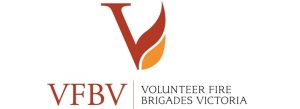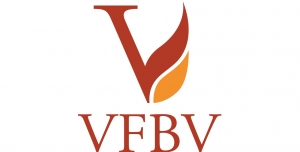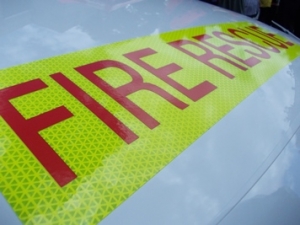EMR Expansion
Since the State Government announcement of the extension of Emergency Medical Response (EMR) to all CFA integrated stations, a number of additional volunteer Brigades have expressed interest in providing EMR and wanted to know how they can become involved.
Interest is strongest in country areas where ambulance services are stretched or needing support, and VFBV has advised the State Government that EMR would be very welcome in areas where the primary agency, Ambulance Victoria, identifies the need and local Brigades have the willingness and the capacity to deliver the service.
The introduction of EMR service in volunteer Brigades is extremely cost efficient, with equipment costs of around $15,000 per Brigade.
Volunteers were pioneers of EMR in CFA, with five volunteer Brigades starting an EMR pilot in 2008. Since then, those Brigades at Berwick, Edithvale, Mornington, South Morang and Whittlesea have shown the extra skills are not only lifesaving at EMR jobs but are also useful at road accidents and rescue calls.
Brigades that feel EMR would be beneficial in their area and within their capacity to deliver, should contact VFBV. Several Brigades are already actively in discussion with their community and local MPs.
Budget a Mixed Bag but Truck Funding is Needed and Welcome
VFBV MEDIA RELEASE - Friday, 8 May 2015
BUDGET A MIXED BAG BUT TRUCK FUNDING IS NEEDED AND WELCOME – CFA VOLUNTEERS
CFA volunteers say the State Budget’s $33.5 million for new fire trucks is needed and welcome, and the $1 million allocation to continue the program of providing amenities at all rural fire stations will be very welcome at those Brigades that don’t currently have toilets.
Volunteer Fire Brigades Victoria (VFBV) CEO Andrew Ford says the truck funding announcement is an encouraging sign the State Government is hearing the concerns that volunteers have raised over CFA’s ageing fleet of front line fire and rescue vehicles.
“There are hundreds of CFA trucks over the nationally accepted age limit of 20 years that are still in use as first response emergency vehicles, and VFBV’s research shows it will take around $30 million a year to gradually bring the fleet up to accepted standards,” Mr Ford said.
“The State Budget’s allocation of $33.5 million for 70 new fire trucks funded in the 2015/16 year is a good start; now it’s important to work towards an ongoing funding commitment and a rolling five year fleet replacement plan that gradually brings the CFA fleet under the 20 year age limit,” he said.
“While CFA’s older trucks are well maintained, they don’t have the speed, handling, crew safety and bigger firefighting capacity of newer trucks – a younger fleet will benefit volunteers and the communities they protect.”
“This year’s budget funding for trucks is a welcome acknowledgement of the volunteers’ concerns, and VFBV will continue to work with the Government on this important issue,” Mr Ford said.
On other fronts, there is some welcome funding but well short of what is needed, particularly considering the urgent need to replace the large scale training capacity lost with the closure of CFA’s Fiskville Training College. The State Budget has allocated $300,000 for planning of a new local CFA training facility near Ballan.
“It is vital that Fiskville’s training facilities and capacity be replaced as soon as possible, and volunteers are concerned that the State Budget did not include strong measures to achieve that,” Mr Ford said.
“Fiskville has had a critically important role in CFA’s network of facilities, training local Brigades in that part of Victoria and providing live-in training and specialist programs for CFA personnel from all over the state,” he said.
“There must be serious and immediate attention paid to meeting the training needs of CFA’s tens of thousands of firefighters,” Mr Ford said.
VFBV has also welcomed the expansion of the Emergency Medical Response (EMR) program to all integrated, staff/volunteer CFA Brigades, but is concerned the funding in the Budget is not enough.
“The funding allocated is certainly not sufficient to train and equip all of the state’s 33 integrated, staff/volunteer Brigades to deliver EMR,” Mr Ford said.
“And there is still no mention of funding to continue implementing EMR in more volunteer Brigades,” he said.
CFA Brigades, including five all-volunteer Brigades, have been providing EMR since 2008 and have saved a number of heart attack victims by dispatching specially trained crews who provide CPR in the vital first minutes until paramedics arrive.
“VFBV welcomes the expansion of EMR so far, but will continue to work with the Government to encourage funding for its introduction to more volunteer Brigades, particularly in country areas where the ambulance service is stretched or needing support,” Mr Ford said.
Ends…
Background information on EMR:
Emergency Medical Response (EMR) was first introduced in 2008 as a pilot program involving five volunteer Brigades, with five integrated, staff/volunteer Brigades joining the program later.
EMR Brigades are specially trained and equipped to deal with heart attack patients and use their shorter response times to begin CPR in the vital minutes before the ambulance arrives and paramedics take over.
The program has resulted in increased survival rates for heart attack victims in areas where Brigades provide EMR.
Emergency Medical Response Program a Winner – CFA Volunteers
VFBV MEDIA RELEASE 25 February 2014
The CFA volunteers’ association, Volunteer Fire Brigades Victoria (VFBV), has welcomed the State Government’s decision to extend Emergency Medical Response (EMR) to more CFA fire stations.
With EMR, CFA crews trained in advanced first aid and equipped with oxygen and defibrillators are despatched to urgent ambulance calls, arriving and starting resuscitation of the patient minutes earlier, significantly increasing the patient’s chances of survival.
VFBV Chief Executive Officer Andrew Ford says five volunteer Brigades have been providing EMR response since 2008 under the pilot program, with five Integrated Brigades joining them in late 2011.
“CFA volunteer and paid firefighters at ten brigades across the suburbs of Melbourne and provincial centres have achieved great success with Emergency Medical Response, saving a number of lives,” Mr Ford said.
“The official study that shows EMR can significantly increase the patients’ survival rate matches the volunteer Brigades’ experience, and expansion of the program can only be a good thing, especially in country areas, where ambulance response times can be quite high,” he said.
“The State Government’s announcement of $5 million to extend the program is a good start; the cost of EMR equipment and training for a volunteer Brigade is quite modest, especially for the considerable benefits it can produce.”
The volunteer Brigades achieving success with EMR since 2008 are; Berwick, Edithvale, Mornington, South Morang and Whittlesea. Dozens of volunteers contributed and responded to the evaluation study, indicating they were extremely happy in performing the EMR role, and reporting the extra skills to be useful at other fire related call types, such as car accidents and rescue events.
Ends…
Emergency Medical Response Program a Winner - Media Release
VFBV Media Release - Wednesday, 25 February 2015
The CFA volunteers’ association, Volunteer Fire Brigades Victoria (VFBV), has welcomed the State Government’s decision to extend Emergency Medical Response (EMR) to more CFA fire stations.
With EMR, CFA crews trained in advanced first aid and equipped with oxygen and defibrillators are despatched to urgent ambulance calls, arriving and starting resuscitation of the patient minutes earlier, significantly increasing the patient’s chances of survival.
VFBV Chief Executive Officer Andrew Ford says five volunteer Brigades have been providing EMR response since 2008 under the pilot program, with five Integrated Brigades joining them in late 2011.
“CFA volunteer and paid firefighters at ten brigades across the suburbs of Melbourne and provincial centres have achieved great success with Emergency Medical Response, saving a number of lives,” Mr Ford said.
“The official study that shows EMR can significantly increase the patients’ survival rate matches the volunteer Brigades’ experience, and expansion of the program can only be a good thing, especially in country areas, where ambulance response times can be quite high,” he said.
“The State Government’s announcement of $5 million to extend the program is a good start; the cost of EMR equipment and training for a volunteer Brigade is quite modest, especially for the considerable benefits it can produce.”
The volunteer Brigades achieving success with EMR since 2008 are; Berwick, Edithvale, Mornington, South Morang and Whittlesea. Dozens of volunteers contributed and responded to the evaluation study, indicating they were extremely happy in performing the EMR role, and reporting the extra skills to be useful at other fire related call types, such as car accidents and rescue events.
 Displaying items by tag: EMR
Displaying items by tag: EMR



